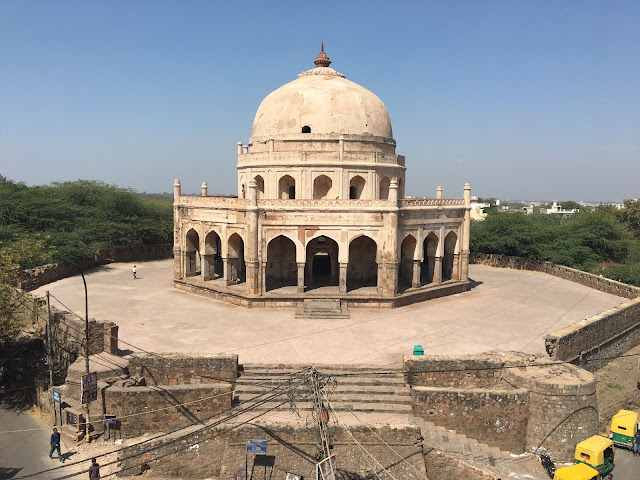One of the powerful nobles of the Mughal empire during
Akbar’s reign, Adham Khan was the son of Maham Anaga, the foster mother of the
Mughal emperor Akabr. He was sent by Akbar to conquer Malwa in 1561 which he
accomplished with oppressive measures.
According to some school of thought, one of the causes for the invasion of Malwa was Adham Khan’s infatuation for Rupmati, the queen of Baz Bahadur, the ruler of Malwa. Baz Bahadur, who had hitherto neglected the administration of his kingdom, awoke from his slumber and faced the enemies but was defeated in the battle of Sarangpur and fled to Khandesh and Burhanpur. All his treasure and several other wives fell into the hands of Adham Khan whose methods to conquer Malwa and their oppression in the Malwa kingdom have been described by the contemporary historian Badauni, who had accompanied the Mughal army.
When it was found that Rupmati ran the risk of being
captured by Adham Khan, a eunuch of Baz Bahadur's harem caused wound to her
with a sword. She later consumed poison and killed herself.
After hearing that Adham Khan, who was known for his contumacious
spirit, had retained all the ladies, dancing girls, musicians and singers of
Baz Bahadu and other spoils, Akbar was displeased and proceeded to Malwa. His
movement was so fast that messengers sent by Maham Anaga were not able to
communicate Adham Khan about the impeding visit of Akbar.
Irked at Adham Khan’s behaviour, Akbar, who now wanted to come out of the
influence of Maham Anaga and his son, appointed Shamsu-d din Muhammad Khan Atga
as Prime Minister. This incensed Adham
Khan so much that he murdered Atga.
Unable to bear his handedness, Akbar got Adham Khan killed
in Agra in 1562. His mother Maham Anaga who exercised undue influence on Akbar,
died of anger and grief forty days after his son’s death.
Akbar, however, accorded due respect to both of them
after their death and got them respectfully buried in a tomb in Mehrauli in
Delhi.

Comments
Post a Comment